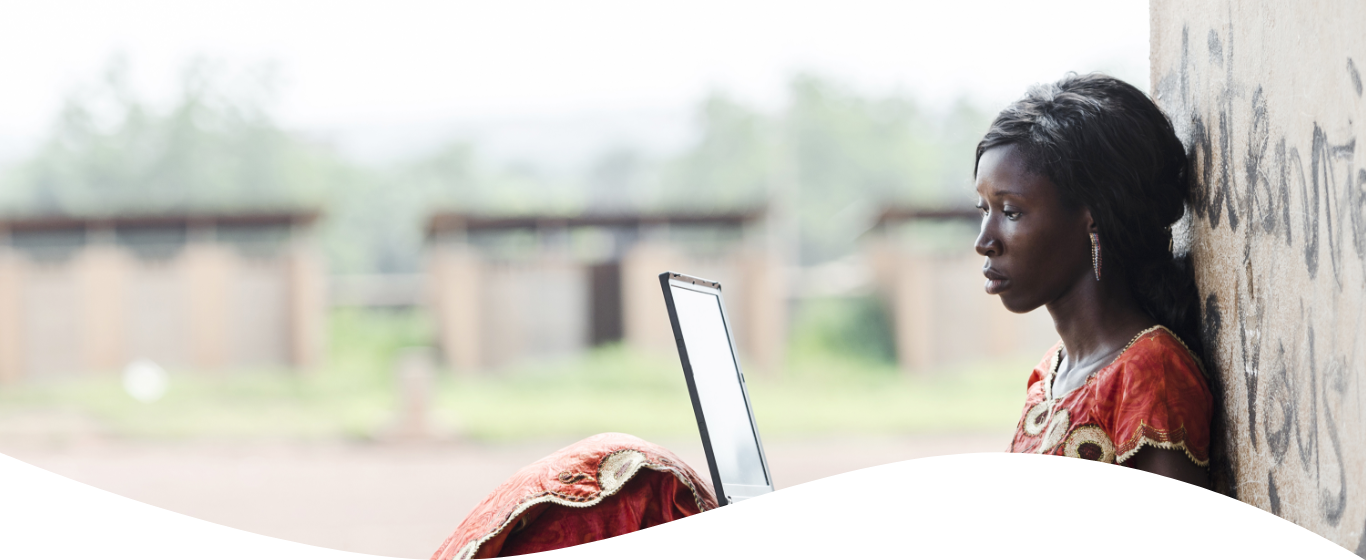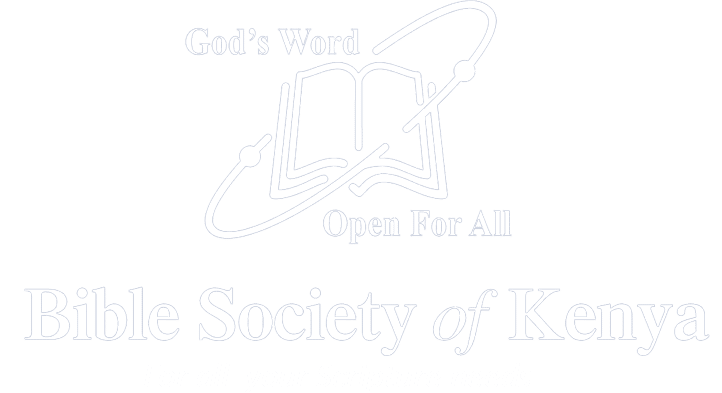Kamba/Kikamba Language - Introduction
The official languages in Kenya are English and Swahili (Kiswahili). However, if you travel the rural streets and the beautiful countryside, it is likely you will hear the people of Kenya speaking their local tribal tongue and not the official language of their country. After all, they would have been speaking their local tongue since birth and 75% or more of their daily communication would be with locals in their native tongue. So, although English and Swahili are taught in all of the schools from a young age, it is not predominant, and often somewhat of a challenge for everyday chat.
So if you want to mesh with the locals, you will likely want to learn their language - or at least enough to be polite and make your way through average daily activities.
Kamba is one of the tribal languages in Kenya, very prominent in the Machakos County region. When a Kenyan says that they speak Kamba, they will say that they speak “kikamba” which would more properly translate to “the language of Kamba”. One of the features of Kamba is that they merge words and prefixes/suffixes together to create conglomerate words that have a ‘combined’ meaning. Much like the term “Kikamba” itself
A Spoken Language
Kikamba is primarily a spoke language. The various written versions of the words are intended to help sound out the spoken language, but as with any language cannot form the exact sound that the locals will consider “proper” dialect. It is also likely that various regions may have variations in pronunciation and spelling. But don’t give up hope. Fortunately, the language is not too difficult to read and learn. So with a little effort and some friendly locals to help, you are sure to pick it up. I often found that saying a word several times based on the spelling, a local Kenyan will eventually understand the word I am trying to say and is eager to help me adjust my pronunciation. (Although 50% of the time I can’t tell the difference between what I am saying and their pronunciation. More on that to come.)
One thing that has become apparent in the short period of time that I have been learning Kikamba is that you may often find different persons write or spell kikamba words differently. Again, it is a primarily spoken language and there may not be an official spelling for each term or word-conglomerate… or if there is an official spelling, it might not be widely taught/propagated since the focus in schools is to learn Kiswahili and English.
When learning Kikamba - spend more time listening to and learning the way they form the words verbally than what may be written on a piece of paper.
Below are a series of simple lessons for learning various part of the Kikamba language. Note that many numbers have multiple forms. Here we have tried to list the purest for of the number first followed by alternate forms of the number that may be used in various contexts.
For example, the number 1 (one) is "imwe" in Kikamba. However, when you say "one o'clock" you would say "saa umwe".
LESSON 1: Numbers
- imwe / umwe = 1 one
- ili = 2 = two
- itatu / atatu = 3 three
- inya = 4 four
- itano = 5 five
- thanthatu = 6 six
- muonza = 7 seven
- nyaanya = 8 eight
- keenda = 9 nine
|
- ikumi = 10 ten
- ikumi na umwe = 11 eleven
- ikumi na ili = 12 twelve
|
- miongo ili = 20 twenty
- miongo itatu = 30 thirty
- miongo ina = 40 forty
- miongo itano = 50 fifty
- ...
- iana yimwe = 100 one hundred
|
LESSON 2: Time
The Kikamba word "saa" can refer to time and also "hour". (and even "clock" I believe) It is also important to note that the hours in the day in Kenya are counted differently. Hour 1 (one/saa umwe) is what we would call 7 o'clock. Either 7 in the morning, a little after sunrise, or 7 in the evening, around sunset. When someone in Kenya speaks English, they will most likely translate the numbers as well. So if it is "saa umwe" (lterally hour one) in Kenya, they would properly translate that to "7 o'clock" in English.
The Kikamba word "ndatika" refers to minutes. So "saa kumi na ndatika itatu" would be saa (hour) kumi (10) na (and) ndatika (minutes) itatu (3) which is 4:03 am or pm.
The Kikamba word "nyusu" means "half". So to say it is 7:30 you would say "saa umwe na nyusu" or litterally "hour one and half".
- saa umwe = hour one = 7 o'clock (am or pm)
- saa ili = hour two = 8 o'clock (am or pm)
- saa itatu = hout three = 9 o'clock (am or pm)
- saa inya = hour 4 = 10 o'clock (am or pm)
- saa itano = hour 5 = 11 o'clock (am or pm)
- saa sita sya muthenya = 12 o'clock noon (day)
/ saa sita sya utuku = 12 o'clock midnight (night)
- Saa muonza = hour seven = 1 o'clock (am or pm)
- saa nyaanya = hour eight = 2 o'clock (am or pm)
- saa keenda = hour nine = 3 o'clock (am or pm)
- saa kumi = hour 10 = 4 o'clock (am or pm)
- saa kumi na umwe = hour 10 and 1 = 5 o'clock (am or pm)
- saa kumi na ili = hour 10 and 2 = 6 o'clock (am or pm)
- saa umwe na ndatika imwe = hour one and minutes 1 = 7:01 (am or pm)
- saa umwe na ndatika ili = hour one and minutes 2 = 7:02 (am or pm)
- saa umwe na ndatika itatu = hour one and minutes 3 = 7:03 (am or pm)
- ...
- saa umwe na ndatika kumi = hour one and minutes 10 = 7:10 (am or pm)
- saa umwe na ndatika kumi na umwe = hour one and minutes 10 and 1 = 7:11 (am or pm)
- saa umwe na ndatika kumi na ili = hour one and minutes 10 and 2 = 7:12 (am or pm)
- ...
- saa umwe na ndatika miongo ili = hour one and minutes 20 = 7:20 (am or pm)
- saa umwe na ndatika miongo ili na umwe = hour one and minutes 20 and 1 = 7:21 (am or pm)
- saa umwe na ndatika miongo ili na ili = hour one and minutes 20 and 2 = 7:22 (am or pm)
- saa umwe na nyusu = hour one and half = 7:30 (am or pm)
- saa ili na nyusu = hour two and half = 8:30 (am or pm)
- saa sita na nyusu = hour ??? and half = 12:30 in the afternoon
LESSON 3: Future/Past Tense and Question Form
Different types of verbs are treated differently in how they form future tense, past tense, or question form. Below is a single example of how "to count" gets adjusted in each of these scenarios.
kutala = to count
FUTURE TENSE:
- Ve mundu unukutala nguku uni? = Will someone count the chickens tomorrow?
- Nuutala nguku uni = I will count the chickens tomorrow
- Akatala nguku uni = She (or he) will count the chickens tomorrow
- Nituutala nguku vamwe = We will count the chickens together
QUESTION:
- Ve umwe unuutala nguku oyu? = Is anyone counting chickens now?
- Ve umwe uneetala nguku ioo? = Did anyone count chickens yesterday?
- Ve mundu unukutala nguku uni? = Will someone count chickens tomorrow?
- “Is anyone” , “will someone” , “did someone” is all the same "ve mundu" / “ve umwe”
This utility is designed to help with the tranlsation process between Kikamba and other languages (currently English). Note that it is a word-by-word translation and not a full lignual translation. This may be problematic when trying to perform a complete translation to or from Kikamba, but serves as an excellent tool for understanding sentence structure differences in the translation process. Therefor think of it more as a learning tool rather than a translator.
English:
{{formData.english}}
Part of Speech:
{{formData.partofspeech}}
Alternates:
{{formData.alternates}}
Pronunciation:
{{formData.pronunciation}}
Bible Verses:
{{formData.bibleverse}}
References:
{{formData.references}}
Definition:
{{formData.definition}}
Category:
{{formData.category}}
Phrase:
{{formData.phrase}}
English:
{{formData.english}}
By Word [to English]:
{{formData.bywordto}}
By Word [from English]:
{{formData.bywordfrom}}


